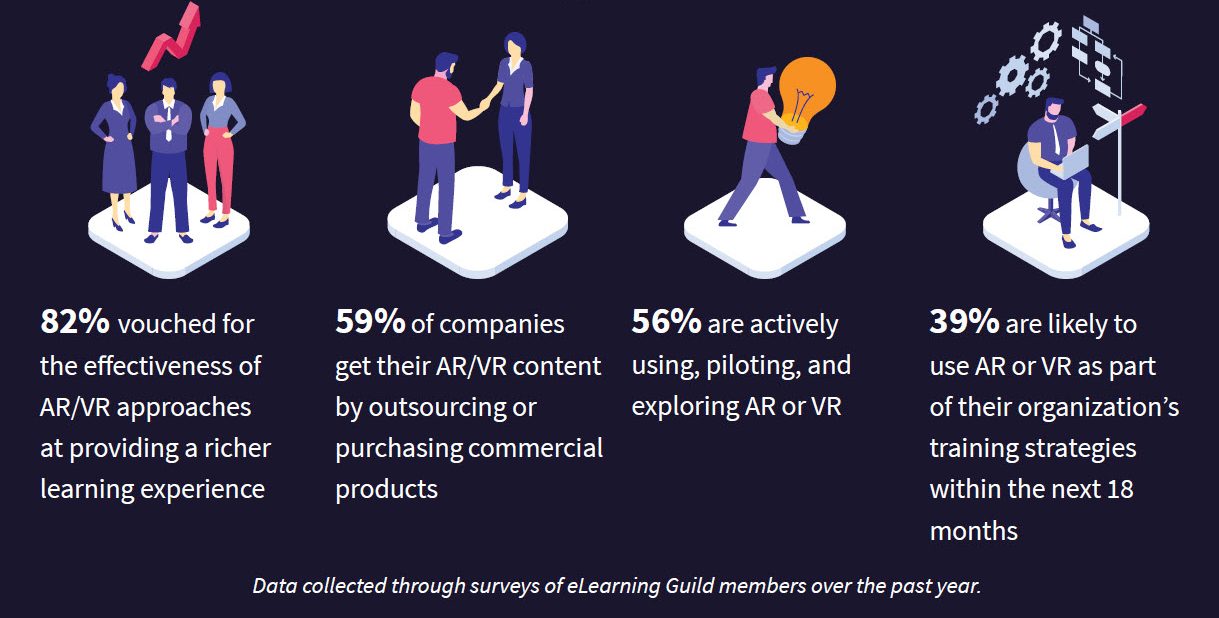David Kelly’s Curated L&D Content for the Week of 3/25/19
 This week’s curated content includes links exploring the following:
This week’s curated content includes links exploring the following:
- how to improve your organization’s training request process
- four factors that affect performance more than training
- four lessons L&D can learn from marketing
- a few examples where branching scenarios don’t work
- tips on how to prepare for your next conference
- important parts of elearning projects that are often not factored into project timeframes
Burn your training request form by Cathy Moore
Most organizations have a formal process to request training for their employees. This process is often a good yardstick by which to judge how your organization looks at the role of L&D. This post examines this paradigm by taking a deep dive into the training request form, looking at the words and phrases that are commonly used that hold L&D back, and providing alternatives that position L&D as a performance partner rather than just a deliverer of training.
4 Reasons Talented Employees Don’t Reach Their Potential by Tomas Chamorro-Premuzic
“It’s a training issue.” This is a common refrain that is often used (and more often, misused) to assess a performance deficiency. Training is only one of a host of reasons why an employee’s performance can suffer, and I’d argue it’s probably not even in the top five most common reasons. This post examines four of the most common reasons why employees fail to reach their potential. While the post doesn’t specifically address training, understanding other factors that can affect performance is critical in order to truly position yourself as a performance consultant within your organization.
4 Marketing Ideas to Borrow for Better Learning Experiences by Danielle Wallace
One of the best ways to build your L&D skills is to look at lessons other fields can share with L&D. One of the first resources I recommend to people in this regard is the field of marketing. Marketing efforts share many of the same goals and themes with training and education, so we can learn a great deal from the work done in that field. This post explores four specific things marketing does well that can be adapted to improve the learning experiences we provide.
When Should You Avoid Branching Scenarios? by Christy Tucker
Branching scenarios are a staple of elearning design. It’s understandable why that is the case, as scenarios can be a great way to explore a topic. But if we’re not careful, using scenarios can become a habit, leading to misuse. It’s always important to occasionally step back and question some of our routine practices to make sure we’re using them appropriately. This post does that with branching scenarios by presenting a few examples where branching scenarios don’t work.
Community Recommendations: Preparing Before the Conference by Bianca Woods
Conferences are great opportunities for learning and skill development, but a lot of that potential can be left on the table if you just show up without doing some planning beforehand. This week over 1,500 people will gather in Orlando for the 2019 Learning Solutions Conference and Expo, and to help attendees get more out of the event we asked the Ambassadors of the event for their thoughts on how to prepare for a conference. This post shares a number of great tips that can be applied to any conference you may be attending.
eLearning Development: How Much Time Does It Take to Create eLearning? via iCONLOGiC
One of the most common questions that gets asked in our industry is “how long does it take to make elearning?”. It’s an impossible question to answer without context, and the answer varies based on a host of different factors unique to each organization, project, professional, and more. While there is no common answer to the question, there are a number of parts of the project time that are commonly left out of estimates, and that often results in underestimating a project timeline. This post explores some estimates for estimating project timelines, but I share it here mostly for the section that explores important parts of the project that are often forgotten within the estimates.
Are You Ready for the Emergence of AR & VR Training?
Recent surveys collected by the eLearning Guild show a growing number of organizations actively exploring the applications of augmented reality and virtual reality in education and training. Here are just a few interesting takeaways from recent surveys.

Combine these sentiments with AR/VR industry surveys that show investments targeting enterprise training and education as one of the primary targets of AR/VR providers and it appears that AR/VR training is well-positioned for a breakthrough moment.
 This year’s Realities360 Conference and Expo supports this unique moment by bringing together the industry providers that are building training and education platforms, tools, and solutions so that leading organizations and professionals can get the guidance and support needed to build their AR/VR strategies and programs.
This year’s Realities360 Conference and Expo supports this unique moment by bringing together the industry providers that are building training and education platforms, tools, and solutions so that leading organizations and professionals can get the guidance and support needed to build their AR/VR strategies and programs.
If your organization is actively exploring, testing, or implementing AR or VR training and education, you need to be at Realities360 this June. Registration is now open, and many of the sessions you can expect are already online.
If you have any questions about this year’s event, feel free to shoot me an email.

Leave a Reply